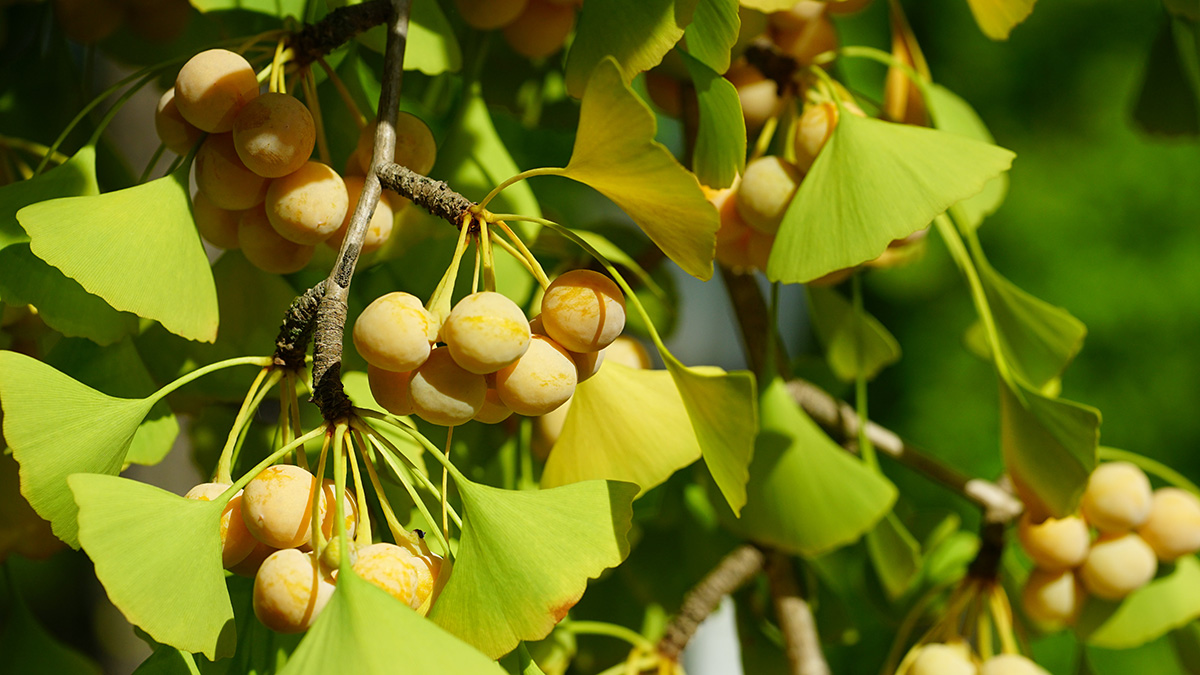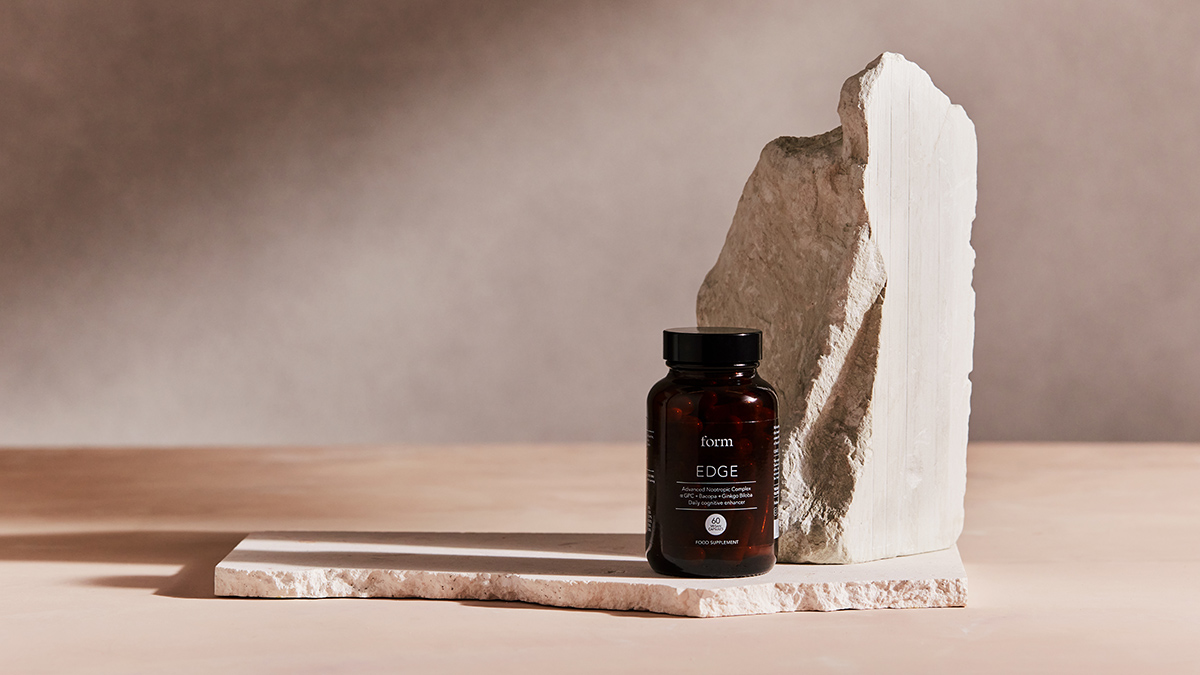What are the Health Benefits of Ginkgo Biloba?

From Ashwagahanda to chia seeds, it seems there isn’t a day that goes by where the wellness world isn’t getting excited about a new health food ingredient.
Scroll through Instagram or TikTok long enough and you’re bound to come across a post that extolls the benefits of an exotic superfood or supplement that promises to help us to feel happier, calmer and more energised.
One ingredient we’re patiently waiting for the internet to catch onto? Ginkgo Biloba. As one of the oldest and most extraordinary trees in the world, it’s one of the hardiest natural species on the planet, and it’s thought to date back to a time before dinosaurs roamed the earth. It’s so ancient, in fact, that it’s what’s known as a ‘living fossil’.
With winter wellness firmly on our agenda, we’re taking a deep dive into the benefits of this potent plant that’s long been a staple of Chinese medicine. Here are a few key reasons why you might want to tap into its healing potential this season…
What is Ginkgo Biloba?
Also known as the ‘maidenhair tree’, Ginkgo Biloba is a species of large, leafy tree that’s native to China. The impressive varieties that are grown across Europe, North America and Asia today are the last living species in the order Ginkgoales, which first appeared on Earth over 290 million years ago.
The Ginkgo is identifiable by its distinctive, fan-shaped leaves that turn a magnificent golden-yellow in autumn. While its seeds are sometimes used in traditional Chinese medicine, western supplements tend to focus on ginkgo extract, which is taken from the leaves.
What are the health benefits of Ginkgo Biloba?
Everyone wants to maintain memory and brain sharpness as they age, and there’s some evidence to suggest that this Chinese tree can help us to stay mentally alert as we age. This is because Ginkgo is classed as a nootropic; a naturally occurring substance that is thought to enhance our cognitive performance and boost focus.
In a 2009 study, 59 elderly patients were treated for six weeks with a twice-daily tablet containing fresh Ginkgo Biloba extract. The patients in the study group suffered from age-related mild cognitive impairment with symptoms, such as forgetfulness, memory problems, and difficulties in concentration.
At the end of the study period, about half of all the patients experienced an improvement in their memory and their ability to concentrate, as well as a decrease in symptoms of forgetfulness. Another study also found that when a Ginkgo Biloba supplement is used in conjunction with other traditional treatments, it could improve cognitive function in people with mild Alzheimer’s disease, although the scientists concluded that more research needs to be carried out.
Ginkgo’s memory-boosting properties are thought to be a byproduct of its effect on the blood vessels; causing them to dilate and increase the blood supply to the brain. Notably, it’s also rich in two powerful antioxidants: flavonoids and terpenoids.
Antioxidants are pretty important compounds; they protect your cells against the effects of free radicals – unstable electrons that scavenge the body to seek out other electrons so they can become a pair. The damage caused by free radicals has been linked to premature ageing, a host of inflammatory diseases, and even cancer.
“Concentrated Ginkgo extracts can be used to improve blood flow, tissue oxygenation and nutrition, and to protect nervous tissue,” explains Herbalist Sebastian Pole, founder of Herbalreality.com. It may have some pretty powerful benefits for our eye health too. “It’s been taken as a supplement to improve retinal blood flow and as a remedy to manage glaucoma and age-related macular degeneration,” he adds.
Thanks to its marked effect on blood flow, Ginkgo might be a particularly useful remedy for people with circulation issues. In people with Raynaud’s disease, a condition that restricts blood supply to the fingers and toes, one study found that people who took Ginkgo for ten weeks experienced a reduction in the frequency of attacks by more than half.
And according to a 2007 study that was published in the Journal of Psychiatric Research, people with generalised anxiety disorder who took a daily supplement for four weeks experienced better anxiety relief than those who took a placebo.
How can do I take Ginkgo Biloba?
Like most herbal remedies, there are lots of different ways to consume Ginkgo Biloba. The leaf extract is generally available as an oral tablet, tincture, capsule or tea. It’s also one of the hero ingredients in our Edge supplements, which uses a blend of Ginkgo Biloba, B vitamins and Bacopa Monnieri to improve focus and energy.
Some people can experience mild side effects from Ginkgo such as stomach upset, headache, dizziness, and allergic skin reactions, so it’s best to stop taking it if it doesn’t agree with you. It also goes without saying that if you’re pregnant or taking medication for any reason, you should always talk to your GP before introducing new supplements into your diet.
One other thing to note? Doctors warn against eating raw or roasted ginkgo seeds, as these can be pretty poisonous and cause serious side effects like seizures. Lastly, always look for quality-tested products to make sure you’re getting the most from your herbal supplements and to avoid wasting your hard-earned cash.
As featured in Men’s Health Fit List, Edge, your cognitive enhancer for daily use, combines high strength extracts of Gingko Biloba with potent nootropics and B Vitamins to help make every day your best. It’s you, improved.




















